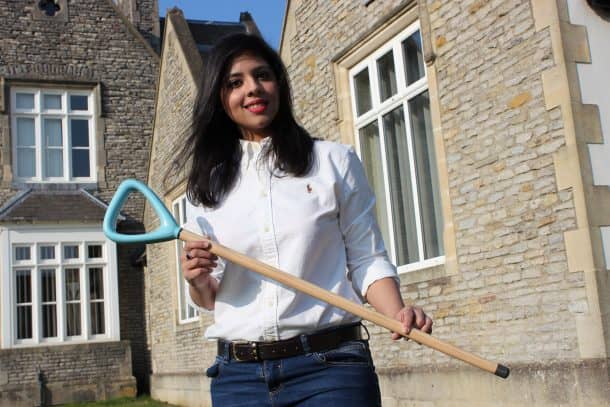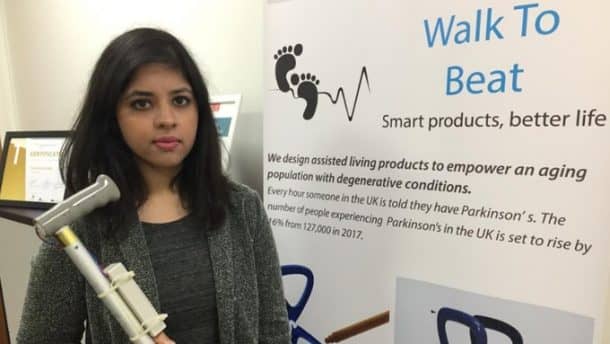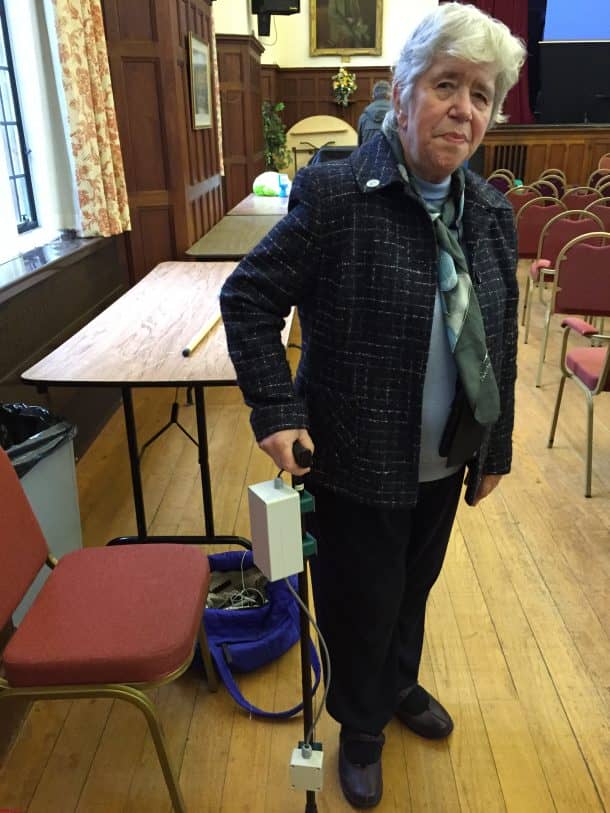A Pakistan-born student entrepreneur at the University of the West of England has developed a walking stick that provides mobility aid to the patients of Parkinson’s disease.

Neha Shahid Chaudhry is a product design technology graduate from UWE Bristol. Neha was an eyewitness of the troubles that Parkinson’s patients went through. Seeing her grandfather struggle with this disease for years, she was inspired to develop a solution. She chose the walking stick as the final year project of her degree.
Her grandfather suffered injuries from repeated falls over years when his joint just froze while walking. The mobility aid developed by Neha can detect when the user stops moving. When the patient’s limbs freeze, the stick vibrates to help them regain their rhythm, and they start moving again.

About 10 million people have Parkinson’s worldwide and about 127,000 only in Britain. The abnormal gait and the frequent joint seizures inflict severe injuries at times. The walking aid has been tested on dozens of patients. Both the NHS and Parkinson’s UK charity have shown their interest in buying the product.
At just 23 years of age, Neha is already the founder of the company Walk to Beat. She expresses her pride by saying,
“When I gave the product to patients to be tested, there were smiles on their faces and they were saying ‘This could really work’. It seems unbelievable that I have made something which could help people, even if it is to a small extent. It’s a great feeling for me and the patients are happy somebody is thinking of them. There isn’t a cure for Parkinson’s – medication just prolongs the condition and helps you stay alive for longer. My aim is to make their lives a bit better while they are dealing with it.”

The Parkinson’s mobility aid looks like any other walking cane as it is made of plastic and is lightweight. However, it includes a sensor to detect when the user stops moving. Upon detecting this, the stick emits a pulsating beat that helps the patient regain motion.
“People with Parkinson’s get jammed in one place and can’t step forward – it can cause falls. They need any kind of rhythm or sequence to get them started again because it acts as a reminder. The beat is inside the handle – it senses when you stop and turns off automatically when you start walking again. Patients say it encourages them to walk and they learn to pace with it,” Neha explains.
Neha’s tremendous efforts and the incredible product has brought her a lot of recognition. She hopes to develop the Parkinson’s walking aid into a marketable product that will help millions of patients around the world.


